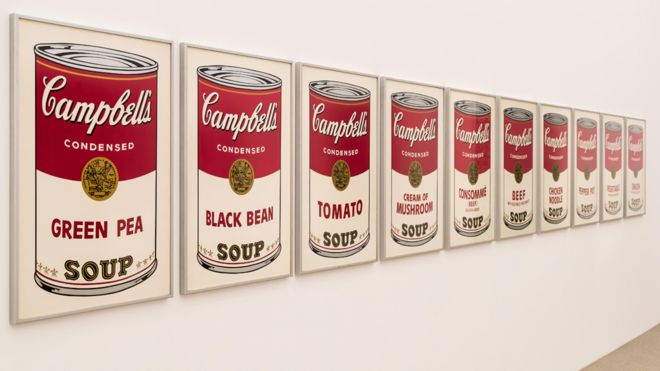
Some dread being stuck in a rut - but there's comfort in habits and repetition, says Will Self.
In the irritating manner of parents the world over I'm subject to quoting famous maxims to my children. I remember retailing one of the French essayist La Rochefoucauld's Pensees to a 15-year-old troubled by his own mortality: "No man may stare at the sun or know the hour of his own death." It's an equally annoying parental trait to quote your offspring's witty remarks - but I cannot forbear. He withered at me, then replied: "You can know the hour of your own death if you kill yourself by staring at the sun." Acute, no? To apprehend at such a young age yet another of the great paradoxes which, so far as we can tell, underpin our existence. To realise that our only truly free act in the wiggle-room afforded us between the millstones of determinism and chaos, is that with which we end it all.
Nowadays, in a world which if not exactly secular, nevertheless likes to don the metaphysical invisibility cloak, death comes to us shorn of bespoke black robe and retro-scythe, so the monster staring back at us from the abyss is revealed to be quite simply our terror in the face of something which can never be anticipated. Because that's what makes life liveable, isn't it, knowing what the hell's going to happen next? And this entails establishing behavioural patterns - what we call at the societal level customs, and at the individual one, habits. Here's an example. Whenever I'm in Melbourne, Australia, I always eat at a Japanese restaurant on the edge of Chinatown, and I always have the same thing - a seafood soup with rice noodles. I'm pretty convinced of this as I say it, but the truth is I've only been in Melbourne twice and for a few days in the past 20 years. It just so happens I ate in the same restaurant on two successive evenings on each occasion.
Nevertheless this was sufficient for me to confidently predict I will at some point in the future eat there again, and moreover for me to also feel distinctly cosy about the prospect. The philosopher David Hume believed that when we infer the sun will rise tomorrow on the basis it did so yesterday and many days before that, such an inference is purely a function of custom or commonsense. Such common sense may well be essential if you're planning to set fire to your retinas, but according to Hume our willingness to plan accordingly has no basis in reason - despite the fact that everyone else who's ever lived has also put the cat out, set the alarm then snuggled down on this well-sprung assumption - the future will, very likely, resemble the past in most important respects.
David Hume 1711-1776
 Getty Images
Getty Images- Born and educated in Edinburgh, his first great work was A Treatise of Human Nature
- Hume was a sceptic who questioned everything and sought to explain the world without reference to a god
- For Hume, almost nothing about existence was demonstrable. Just because the sun had always risen in the morning didn't mean we could "know" that it would rise tomorrow
- His Political Discourses of 1752 anticipated the economics of Adam Smith
If you think this hyperbole you must either be a God of the Abrahamic variety, or know something ultimate about the nature of reality not vouchsafed to the rest of us mortals. For us, custom, and its bespoke application, habit, are integral to our lives because - or so we sort of reason - if we fill our days up with oft-repeated actions, we can shut our ears to the siren song of contingency. If we cleave to the herd - and moreover, stay right in its very core, rubbing shoulders with our clannish fellows - we'll escape being picked off, randomly, by that apex predator - the unexpected.
So it is we perform our ablutions in a rigid sequence - we put on our garments in the same order, we make breakfast by rote, we fold the toilet paper in an origami of our own ancient design - and naturally, we go to work, or to school, at the same time each day, employing the same means of transport. The more you reflect on the matter the more it becomes obvious. The vast majority of people live lives of quiet systematisation, wherein an myriad of tics, gestures, routines, pastimes, methods and hobbies, are nested inside an equally myriad number of clubs, organisations, groups, societies, firms, companies, armed services, nation states and other institutions, all of which provide us with timetables listing events subject to near-eternal recurrence. Such is our addiction to our habits that on occasion one of them will become pathological - when this happens we somewhat confusingly call it "addiction".
 Thinkstock
Thinkstock
No doubt addictions to alcohol, drugs, sex, overeating and social media can be highly detrimental to our lives and the lives of those around us, but it seems a little rich to demonise them so utterly while other equally mindless and repetitive behaviours escape censure altogether. Far from being adjured to address our habit of buying useless consumer goods which have built-in obsolescence, we're positively enjoined to keep calm and carry more shopping if we want the economy to grow. Neither is there a government campaign aimed at persuading people whose jobs are at once utterly useless and soul-destroying to stay at home until we can come up with something better for them to do.
Our sports stars and our stage actors are all valorised precisely because of their ability to do the same thing over and over again, while no artist worth their salt is ever considered to have truly arrived until their idiosyncrasies have hardened into a recognisable and replicable style. Our science depends crucially on an experimental method wherein repetition is enshrined as a criterion of truth. Even our politics is characterised by a high degree of functionally redundant repetition. Election campaigns are regularly undertaken, fought and won with great ceremony, yet most are agreed - nothing whatsoever actually changes.
 Thinkstock
Thinkstock
When we're young all it takes is an inadvisable love affair or a risky bungee jump to convince us we're the masters of our own destiny, but with age comes this realisation - all we truly are is a sort of clump or assemblage of behaviours. So much so that to act truly out of character we'd need to… Well, we'd need to stare long and hard at the sun, which is precisely what we do - albeit incrementally - if we can afford it once we've retired from those repetitive behaviours which classed us as useful and productive members of society. When I was a little younger I used to wonder why it is that airports, railway stations and bus terminals are positively haunching with the elderly, despite their manifestly finding it difficult to put one support stocking'd foot in front of the other. Now, however, I understand that habit is a mind-killer once it's decoupled from any wider concern, no matter how bogus, and although I understand perfectly well taking a Saga holiday won't transform me into a liberated berserker, it's still better than the entropy we call "pottering about".
When I was a still more juvenescent man, kicking against customary pricks, there was an enormously popular novel called The Dice Man, the protagonist of which decides to free himself from the straitjacket of habit by this simple method - in any given situation requiring action on his part, he writes down six alternative courses then rolls a die to see which he should follow. Of course, in the mayhem that ensues - including all sorts of sexual misadventure and intoxicating high-jinks - a group of disciples gathers round the eponymous hero, aspirant dice-men and dice-women who're turning the practice of random behaviour into… well, into a personal habit and a group custom.
 Thinkstock
Thinkstock
Anyway, even if we accepted the premise that the dice method frees us from the hamster-wheel of habit, it only does so by imposing actions on us others customarily choose − otherwise, how could we hit upon them as choices at all? An alternative view is that the dice method unfurls our sail-psyches so as to catch the cosmic winds of pure chance. Maybe so, but there's a world of difference between being subjected to chaos and true self-determination. No, I'll stick with La Rochefoucauld. His insight encourages us to curb our pretensions to world domination and accept the condition of flux we find both within and without ourselves. And if uncertainty about tomorrow's dawn troubles us we can always find succour in this - if the sun doesn't rise, any suicidal impulses we may have will necessarily be restrained… forever.



No comments:
Post a Comment